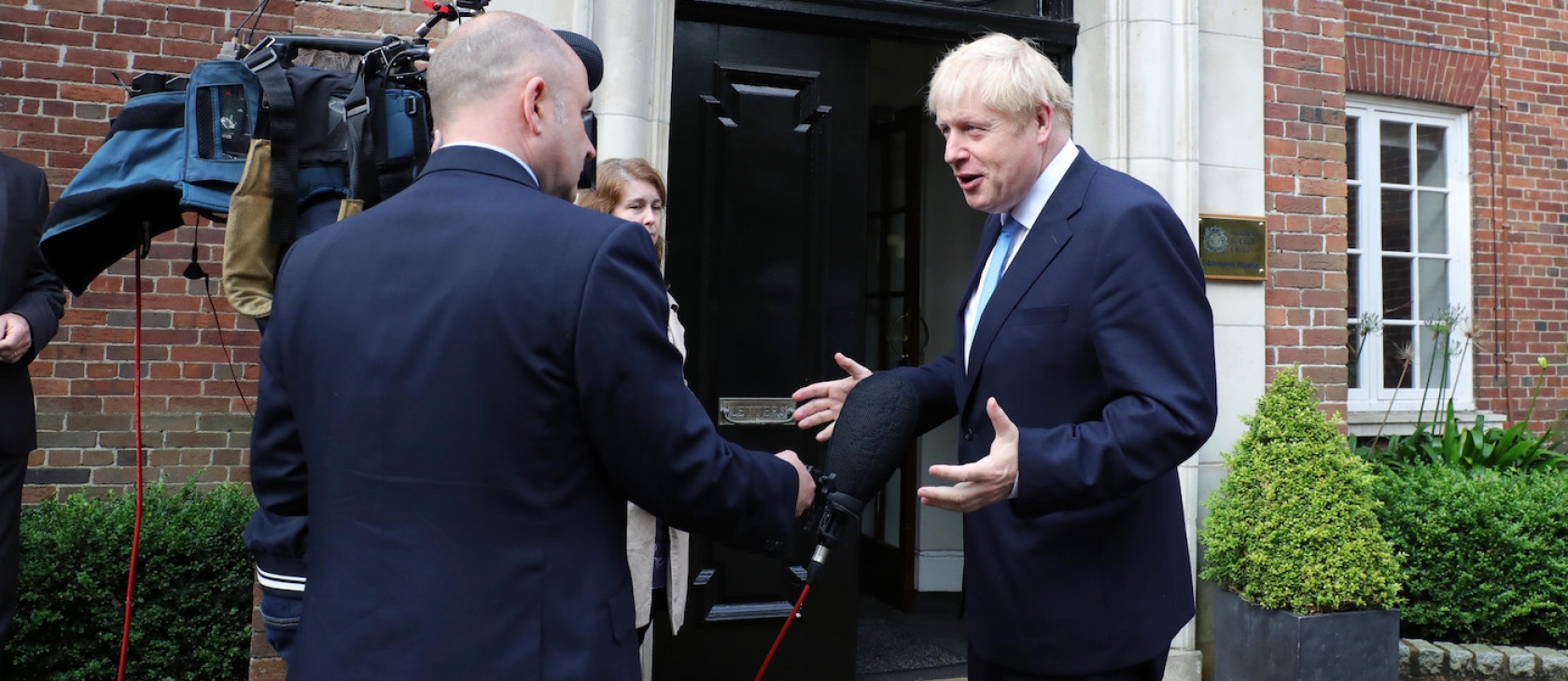Ponder this sign of the dysfunctional state of the UK’s Parliament: The day after Prime Minister Boris Johnson failed to gain a two-thirds majority to call an early General Election, the same Parliament gave overwhelming consent to a hold an election on December 12. The Queen consented to the election on Wednesday morning, and the election has begun.
What lies at the heart of the 2019 British general election?
The real contest in the British election is freedom – political and economic. Yes, on one level it is a Brexit-centered election, with the Prime Minister seeking to deliver on the 2016 referendum result. However, underlying this issue is the desire for both political and economic freedom. People are alienated from the political establishment, taxed from birth until (after) death, taxed on income, property, inheritance, transactions, goods and services; taxed on earned income and unearned income, taxed once and sometimes taxed twice. There is a real opportunity, not only to make a success of Brexit, but to reorient the political landscape toward a vision of economic creativity and freedom, allowing individuals to retain more of their hard-earned income, reducing the size of the state and the level of government spending.
But will it happen, or will the British people be seduced by socialism? We underestimate the shocking attraction of populist left-wing policies at our peril.
- The trains don’t run on time – nationalise the railways
- Waiting lists for medical treatment expand – spend more on the NHS
- Utility companies have an oligopoly – bring them into public ownership
Of course, some of us can remember when the railways were indeed in state ownership. They were run then for the benefit, not of the consumer, but of the unions. Restrictive trade practices dominated the industry. Not only did the trains not run on time but they broke down, and the rolling stock was of appalling quality, with no investment (nor incentive for investment).
The undeniably long waiting lists to receive medical treatment might lead one to think that the healthcare delivery system, the NHS, is not fit for purpose. Maybe a solution might be to outsource or to privatise certain services? Perhaps a more competitive market for drugs might bring prices down? But we are not allowed to question the delivery system. The NHS virtually has divine status in the UK.
Like Margaret Thatcher’s campaign 40 years ago, a winning Conservative vision must articulate a passion for freedom in economics, politics, and religious expression.
A small number of energy companies dominate the market, potentially keeping consumer prices high. Both Labour and Conservative Party members have proposed capping prices in recent years. Perhaps we could rather liberalise the supply side of the market by increasing competition, enabling new and smaller companies to enter the market?
The point is that the superficial attraction of socialism will not be beaten by offering similarly socialist policies, rather by offering a vision for economic liberty. If this is not done, then the electorate may be more attracted than we think by Labour Party leader Jeremy Corbyn’s version of socialism.
What will happen in the election?
The polls suggest a solid majority for the Conservative Party. However, the same polls suggested a Conservative landslide in the 2017 snap election, when in fact the party under Theresa May lost seats. But Boris is not Theresa May. May, a person with a real moral sense and who should not be disparaged, displayed two serious failings: an inability to connect with voters, and too great an attachment to economic corporatism and big government. Boris has significant advantages in both these areas. He is a significantly better campaigner and (as we saw in the Brexit negotiation) has a far greater commitment to economic and trade freedom.
To win, the Conservatives need to gain around 50 seats from the opposition Labour Party whilst limiting losses to the pro-Remain Liberal Democrats. Boris’ pro-Brexit message appeals deeply to ordinary working people of the Midlands and the north of England with a tradition of voting Labour. These electors dislike the duplicity which Parliament has displayed since the Brexit referendum, as well as the prospect of Jeremy Corbyn – an extremist and metropolitan socialist – as Prime Minister. There is no doubt that Boris Johnson appeals to these Leave voters. Most likely this combination of effective campaigning, ending the Brexit saga, and promising economic liberty will deliver a significant number of seats.
However, Nigel Farage’s Brexit Party may mount an effective campaign, defeating the Conservatives and putting Corbyn in 10 Downing Street. Attractive though the Brexit vision of the Brexit Party may be, the party has no coherent policy program and cannot gain enough seats to form a government (if it gains any seats at all).
There remain a number of other dangers to Boris Johnson, as well:
- Jeremy Corbyn is as effective on the campaign trail as he is ineffective in Parliament;
- The election might devolve into a bidding war over who can spend the largest number of taxpayers’ dollars; and
- The sacred cow of the NHS may play into the campaign.
To win, Boris needs to position the election on the principle of freedom - political, from the EU, and economic, not only from the EU but also in establishing an innovative, rewards-based, low-tax economy in which all can flourish. If Boris simply seeks to out-Corbyn Corbyn, the electorate may opt for the genuine article. Like Margaret Thatcher’s campaign 40 years ago, a winning Conservative vision must articulate a passion for freedom in economics, politics, and religious expression.
(Photo credit: UK Govt. Northern Ireland Office. This photo has been cropped. CC BY 2.0.)




